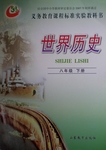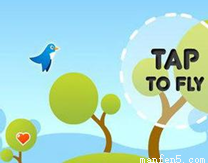题目内容
I was first officer at an airline. One Christmas Eve, I was checking instruments in _______ for my last flight of the day _______ I heard a noise behind me. I looked _______ my shoulder. Just outside the cockpit(驾驶舱) doorway was a boy of about nine _______ at the cockpit. At my glance he started to _______“Come on in here,” I called. The boy stepped _______ into the cockpit. “My name’s Chad.” I said, slicking out my hand. With a shy smile he put his hand in _______, “I’m Sam.”
The captain would be in any minute. Sam looked so _______ that I didn’t want to cut short his fun. I told Sam the _______ of each button. Finally Captain Jim came aboard. I ________ Sam to Jim, who gave him a broad smile. “You ever ________ an airplane before, Sam?” Jim asked. Eyes wide, Sam ________his head. Following my ________, he carefully pressed a button as big as his hand to start the ________, which hummed (发出嗡嗡声) to life.
Sam looked like he was about to cry with ________. We started up the other engine, ________, and arrived in Macon about 40 minutes later.
Early Christmas morning, Sam’s mother came by and ________ a tin of cookies with a note of thanks. Jim looked at it, ________, and read it aloud, “Thank you for what you’ve done. Sam has been dreaming about becoming a pilot. ________, he’s got cancer…”
A small ________ deed that one does can make a big difference to someone else’s life.
1.A. time B. return C. preparation D. exchange
2.A. after B. when C. as if D. even though
3.A. over B. around C. above D. from
4.A. glaring B. aiming C. shouting D. staring
5.A. get in B. turn away C. run out D. set off
6.A. cautiously B. unexpectedly C. desperately D. deliberately
7.A. his B. him C. me D. mine
8.A. thrilled B. worried C. afraid D. confident
9.A. type B. function C. problem D. regulation
10.A. carried B. reported C. introduced D. directed
11.A. saw B. boarded C. started D. visited
12.A. raised B. bowed C. nodded D. shook
13.A. signals B. instructions C. example D. schedule
14.A. flight B. journey C. button D. engine
15.A. happiness B. anxiety C. sympathy D. fright
16.A. gave up B. pulled over C. took off D. went out
17.A. took B. made C. bought D. left
18.A. sighed B. sobbed C. breathed D. relieved
19.A. Strangely B. Eventually C. Carelessly D. Unfortunately
20.A. heroic B. risky C. kind D. honest
 探究与巩固河南科学技术出版社系列答案
探究与巩固河南科学技术出版社系列答案

